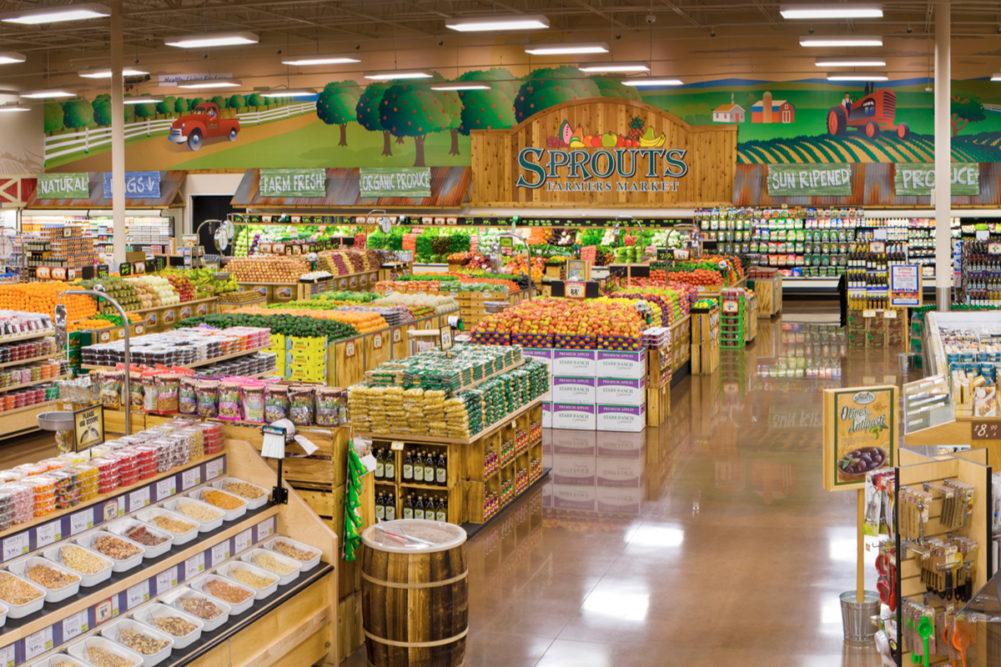PHEONIX — Profits at Sprouts Farmers Market soared in the first quarter ended March 29 as consumers shifted to food at home.
Net income at the natural foods retailer totaled $92 million, equal to 79¢ per share on the common stock, up 39% from $56 million, or 46¢ per share, in the same period a year ago. Net sales increased 16% to $1.6 billion from $1.4 billion. Comparable store sales were up 10.6% for the quarter.
Approximately $146 million in sales were attributed to pantry loading in March, and more than 90% of comparable store sales growth was attributed to the surge.
“We could not have expected the magnitude of change in our business that has occurred due to the COVID-19 pandemic,” said Jack Sinclair, chief executive officer at Sprouts Farmers Markets, during a May 5 conference call with analysts.
Stockpiling is likely over, he added, but changes in consumer behavior have continued impacting the business in the second quarter.
“People are more interested in healthy eating,” he said. “We're seeing it in our grass-fed beef sales and we're seeing it in antibiotic-free chicken. Things that are perceived as healthier, more people are going to be interested in that in the post-COVID world.”
Customers consolidated shopping trips and shifted their visits more throughout the week and less on the weekend, he said. Less trips resulted in larger baskets but less traffic, a trend that continued into April and May.
“No one knows how long these behaviors will last,” he said.
E-commerce accelerated 160% year-over-year in March and accounted for 4% of first-quarter sales. The change in consumer preference prompted a swift rollout of the company’s pickup services from 55 stores to all stores in March.
“I think e-commerce generally has accelerated across the United States for grocery,” Mr. Sinclair said. “I think they've probably gone forward four years in four weeks … we will have to make sure that we're capable of effectively servicing a bigger e-commerce business going forward.”
E-commerce sales were up 950% year-over-year in April, he said. The trend is expected to continue even as more states lift stay-at-home orders and move to reopen their economies.
“I think it's too early to say, but my gut feeling is that the customer isn't moving as fast with the changed orders,” Mr. Sinclair said. “The two places that we have a decent store base where things have changed in the last week or so are Texas and Georgia. In Georgia, we have not really seen any difference in customer behavior. There's still a lot of reluctance to kind of go into the stores. The traffic trends haven't changed. The basket trends haven't changed. Maybe in Texas, we've seen a little bit of a difference, but not much.”





